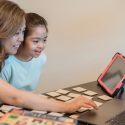Every child is unique, with their own set of strengths and challenges. For some children, learning disabilities can present obstacles in their educational journey. Learning disabilities are neurodevelopmental disorders that affect how children process and understand information, often leading to difficulties in reading, writing, math, or other cognitive tasks. However, with the right support and interventions, children with learning disabilities can thrive academically and personally. This article explores the importance of seeking help for children with learning disabilities and provides guidance on how to navigate this journey.
Identifying Learning Disabilities
Recognizing the signs of a learning disability is the first step towards getting the necessary help. Common signs include struggles with reading comprehension, writing, spelling, math calculations, and organizing thoughts. Children might also have difficulty following instructions, paying attention, or staying focused on tasks.
Seeking Professional Assessment
If you suspect your child has a learning disability, seeking a professional assessment is crucial. Educational psychologists, neuropsychologists, and specialized educators can conduct comprehensive assessments to identify specific learning difficulties. These assessments provide insights into the child’s cognitive strengths and weaknesses, guiding the creation of tailored interventions.
Individualized Education Plans (IEPs)
For children with diagnosed learning disabilities, schools can provide Individualized Education Plans (IEPs). An IEP outlines the child’s learning goals, accommodations, and specialized support services. These plans ensure that the child’s educational needs are met in a way that fosters growth and progress.
Specialized Instruction
Children with learning disabilities often benefit from specialized instruction that targets their specific challenges. This might include multisensory reading programs, math interventions, speech therapy, or occupational therapy. These interventions are designed to address the root causes of the learning difficulties and help children develop essential skills.
Assistive Technologies
Advancements in technology have brought forth a range of assistive tools that can support children with learning disabilities. Text-to-speech software, speech recognition tools, and graphic organizers are just a few examples of technologies that can enhance learning and compensate for specific challenges.
Home-School Collaboration
Supporting children with learning disabilities requires a collaborative effort between parents and educators. Regular communication between home and school ensures that the child’s needs are consistently addressed. Sharing strategies that work both at school and at home can create a seamless learning experience.
Emotional Support
Children with learning disabilities might experience frustration, low self-esteem, and anxiety due to their challenges. Providing emotional support and fostering a positive attitude towards learning is essential. Celebrating small victories and encouraging a growth mindset can help build confidence.
Transition Planning
As children with learning disabilities approach adolescence, it’s important to consider their transition to higher education or the workforce. Transition planning involves preparing them for independent living, further education, and career opportunities. Identifying strengths and interests can guide this process.
Advocacy
Advocating for children with learning disabilities is essential to ensure they receive appropriate support and accommodations. Parents can work with schools to make sure their child’s needs are met, and they can also connect with local support groups and advocacy organizations for guidance.
Celebrating Progress
Every step of progress is worth celebrating. Children with learning disabilities work hard to overcome challenges and achieve their goals. Recognizing their efforts and successes can boost their self-esteem and motivation.
Getting help for children with learning disabilities is a proactive and empowering approach to enable their success. With the right interventions, support, and a collaborative approach, children with learning disabilities can navigate their educational journey with confidence and reach their full potential.

Comments are closed